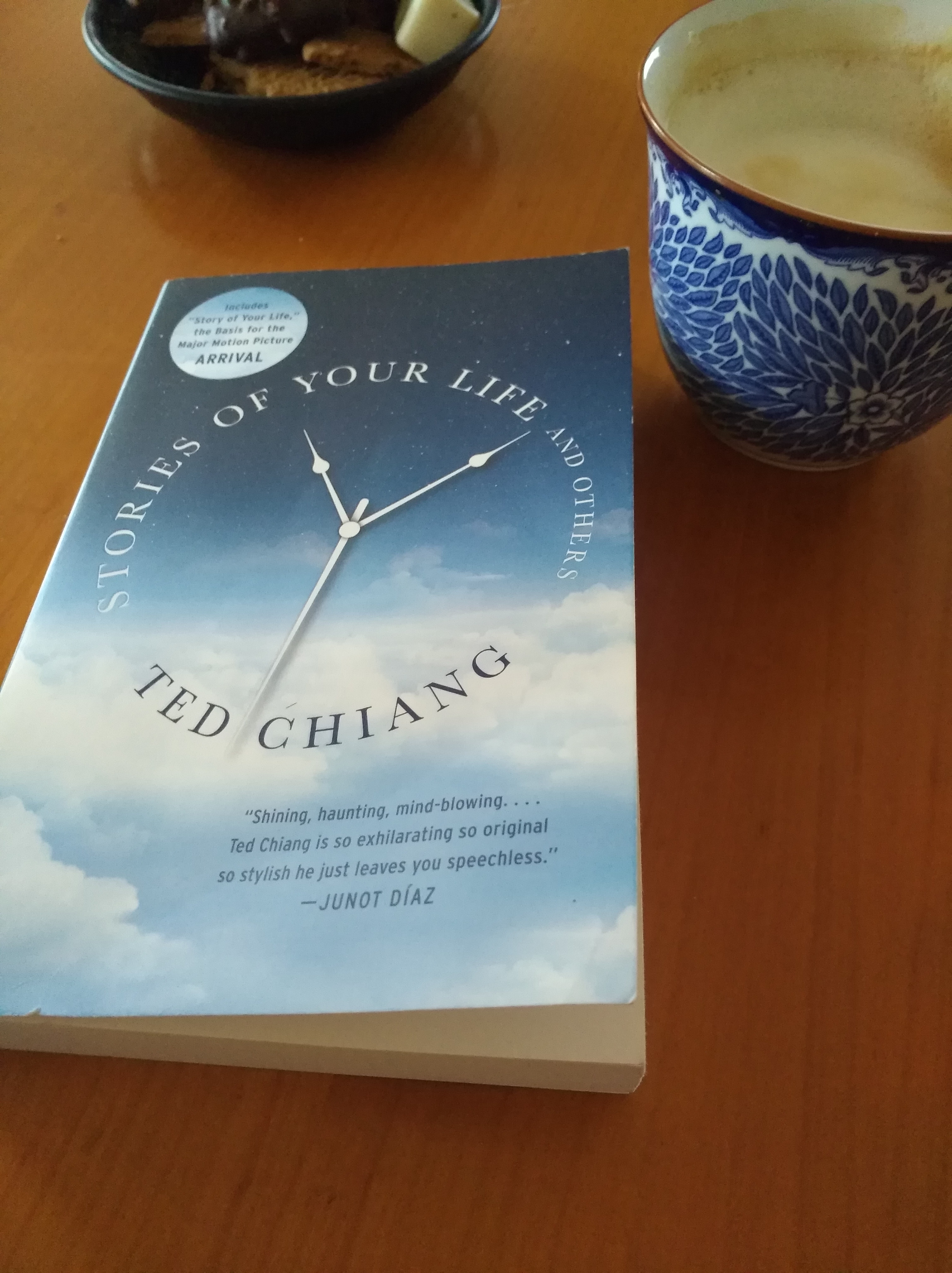Books - Read and Enjoyed
Stories of Your Life, by Ted Chiang
by Ted Chiang
Vintage Books, 2016
Ted Chiang writes science fiction stories, sort of. They are fiction in the sense that they have not and could not happen in the way narrated, and science in the sense that often they assume technology advances, which are hard to comprehend.

The salient feature of all stories in the book is that assumptions are made which are obviously incompatible with our scientific knowledge, but once accepted, the stories develop highly convincing, logical and full of compelling details. For instance, in Seventy-Two Letters the assumption is, that new human babies are created from small copies of humans in the male sperm, each of them have again smaller copies of humans in their sperm, in a possibly infintie regression. This was in fact a common and plausible theoory in science before the like of Darwin, Watson, Franklin and Crick solved the puzzle of natural reproduction. So although we know today, that this is not the way biology works, once you accept this assumption, the story develops highly logical and thrilling.
Other odd assumptions as starting point of fascinating stories in this book are that archangles frequently visit the earth and inflict miracles of sorts, that there exisits a drug that blocks the brain from seeing the beauty, and ugliness, in faces without missing any factual details, and that the future can in some way be known but not changed.
Starting from weird assumptions the stories are perfect in the sense that they are full of convincing details, narrated in an engaging vivid style and developed to their utmost logical consequences. If you enjoy when your imagination is guided over very thin ice to impossible, yet in themselves consistent cities full of color and detail, you will read these stories by Ted Chiang with pleasure.
(AJ January 2020)
